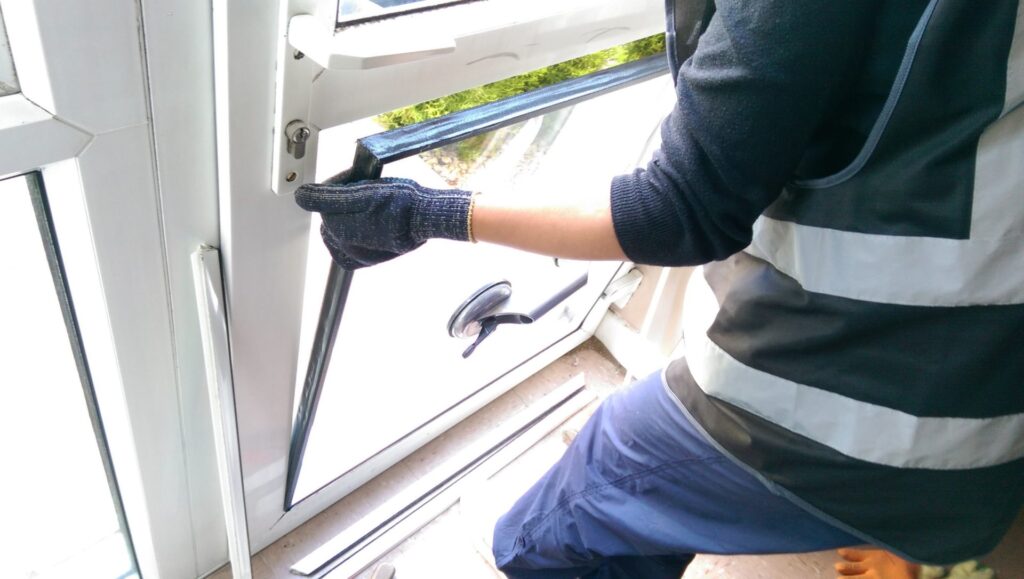
12
JulyThe 10 Scariest Things About Residential Window Repair

Residential Window Repair: A Comprehensive Guide
Windows are an important part of any home, providing light, ventilation, and a view of the outside world. However, like any other element of a house, windows can become damaged in time, demanding repairs to keep their performance and looks. This article intends to supply homeowners with a detailed understanding of residential window repair, covering typical issues, repair strategies, and preventive steps.
Typical Window Problems
Before diving into repair methods, it's essential to identify a few of the most common window issues that homeowners might come across:
- Drafts and Air Leaks: Windows can establish spaces due to weakening seals, enabling cold air to go into and warm air to leave.
- Broken Glass: Impact from debris or weather condition phenomena can lead to cracked or shattered glass panes.
- Rotting Frames: Wooden window frames can experience rot due to extended exposure to moisture.
- Misalignment: Windows might end up being misaligned in time, making them challenging to open or close correctly.
- Foggy or Cloudy Glass: This problem frequently develops in double-paned windows when the seal fails, resulting in condensation in between the panes.
| Problem | Description | Possible Solution |
|---|---|---|
| Drafts and Air Leaks | Air enters/escapes through gaps | Reseal or caulk windows |
| Broken Glass | Split or shattered panes | Replace the glass |
| Rotting Frames | Decay due to moisture | Replace or repair the frame |
| Misalignment | Window doesn't open/close properly | Straighten or change the window hardware |
| Foggy Glass | Condensation between panes | Change the insulated glass system (IGU) |
Repairing Common Window Issues
1. Sealing Drafts and Air Leaks
To resolve drafts, property owners can follow these actions:
- Inspection: Check for spaces around the window frame.
- Sealant Application: Use high-quality caulk to fill spaces and cracks. Make sure the surface area is clean and dry before application.
- Weatherstripping: Apply weatherstripping to the movable parts of the window to reduce air leakages.
2. Replacing Broken Glass
Broken glass should be changed as soon as possible to avoid injury and additional damage. Steps consist of:
- Remove the Broken Glass: Use gloves for security. Thoroughly eliminate any broken fragments from the frame.
- Measure and Cut New Glass: Measure the opening accurately and have a new pane cut to size.
- Install New Glass: Set the brand-new glass pane into the frame using glazing putty or silicone adhesive for a protected fit.
3. Repairing or Replacing Rotting Frames
Wooden frames with rot can jeopardize the window's structural integrity. While small decaying can be repaired, extreme decay requires replacement:
- Assess the Damage: Identify how much of the frame requires repair or replacement.
- Usage Epoxy: For small damage, apply a wood epoxy to restore the frame.
- Replacement: For comprehensive damage, get rid of the rotting frame sections and set up brand-new wood or consider replacing the entire window.
4. Realigning Misaligned Windows
Windows that are misaligned can often be changed:
- Check the Hinges and Tracks: Inspect for damage or endure the hinges or tracks.
- Change the Hardware: Tighten or reposition screws on hinges or adjust the window tracks to straighten.
- Evaluate the Window: Open and close the window to guarantee smooth operation.
5. Fixing Foggy Glass
Foggy windows usually indicate an unsuccessful seal in double-pane windows, needing replacement:
- Identify the Issue: Confirm that the fogging is because of a seal failure.
- Replace the IGU: Consult a professional for the replacement of the insulated glass system.
Preventive Measures for Window Maintenance
Avoidance is constantly more workable than repair. Homeowners can take several proactive actions to reduce window damage:
- Regular Inspections: Conduct seasonal checks for indications of wear or damage.
- Clean Frames and Glass: Keep frames devoid of dirt, particles, and moisture, which can deteriorate products.
- Repaint Wooden Frames: Apply a fresh coat of paint or sealant every few years to safeguard wood frames from rot.
- Monitor Weatherstripping: Regularly check and replace weatherstripping as needed to keep energy performance.
- Address Leaks Promptly: Tackle minor leakages and concerns instantly to prevent more substantial issues down the line.
Regularly Asked Questions
1. Can I repair my windows myself?
Yes, numerous typical window repairs can be carried out by homeowners with standard tools and a little perseverance. Nevertheless, complicated repairs, especially those including glass replacement or structural issues, must be left to professionals.
2. When should I change my windows rather of repairing them?
If windows are persistently drafty, foggy, or structurally damaged, it may be more cost-effective to change them. Additionally, windows that are over 15-20 years old might benefit from an upgrade to more energy-efficient models.
3. How can I enhance my window's energy efficiency?
Think about adding storm windows, using window film, or installing energy-efficient blinds and tones. Routine maintenance, like resealing and weatherstripping, can likewise boost energy effectiveness.

4. Exist different types of caulk for window repairs?
Yes, there are different kinds of caulk available, consisting of silicone, latex, and polyurethane. Select a water resistant, flexible caulk for long-lasting sealing in exterior applications.
5. How often should I examine my windows?
It is recommended to check your windows a minimum of twice a year, preferably in the spring and fall, to catch any prospective concerns before they become more severe.
residential window repair - Http://Git.bplt.Ru - is not just important for maintaining a home's aesthetic and performance however likewise plays a crucial role in energy effectiveness and expense savings. By familiarizing themselves with common window problems, suitable repair techniques, and preventive steps, property owners can ensure the longevity of their windows. Whether dealing with small repairs or looking for professional support, proactive window maintenance is crucial to a comfortable and efficient home environment.


Reviews